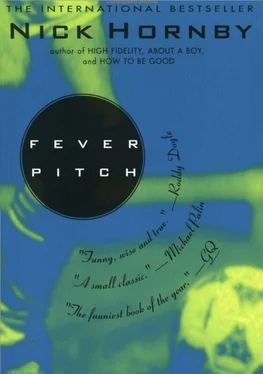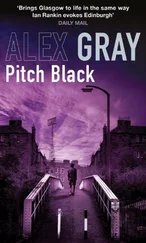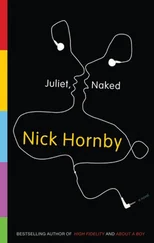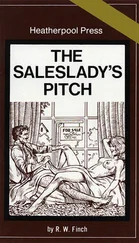In the next eighty minutes, everything else we knew about them came true too. They equalised with a direct free kick from Rivelino that dipped and spun and swerved in the thin Mexican air (had I ever seen a goal scored direct from a free kick before? I don’t remember one), and they went 2-1 up when Pelé took a long pass on his chest and volleyed it into the corner. They won 4-1, and we in 2W, the small but significant centre of the global village, were duly awed.
It wasn’t just the quality of the football, though; it was the way they regarded ingenious and outrageous embellishment as though it were as functional and necessary as a corner kick or a throw-in. The only comparison I had at my disposal then was with toy cars: although I had no interest in Dinky or Corgi or Matchbox, I loved Lady Penelope’s pink Rolls-Royce and James Bond’s Aston Martin, both equipped with elaborate devices such as ejector seats and hidden guns which lifted them out of the boringly ordinary. Pelé’s attempt to score from inside his own half with a lob, the dummy he sold to the Peruvian goalkeeper when he went one way round and the ball went the other … these were football’s equivalent of the ejector seat, and made everything else look like so many Vauxhall Vivas. Even the Brazilian way of celebrating a goal—run four strides, jump, punch, run four strides, jump, punch—was alien and funny and enviable, all at the same time.
The strange thing was that it didn’t matter, because England could live with it. When we played Brazil in the second match, we were unlucky to lose 1-0; and in a tournament that provided dozens of superlatives—the best team of all time, the best player of all time, even the two best misses of all time (both Pelé’s)—we chipped in with a couple of our own, the best save of all time (Banks from Pelé, of course) and the best, most perfectly timed tackle of all time (Moore on Jairzinho). It is significant that our contribution to this superlative jamboree was due to defensive excellence, but never mind—for ninety minutes England were every bit as good as the best team in the world. I still cried after the game, though (mainly because I had misunderstood the way the tournament worked—I thought we were out, and Mum had to explain the vagaries of the group system).
In a way Brazil ruined it for all of us. They had revealed a kind of Platonic ideal that nobody, not even the Brazilians, would ever be able to find again; Pelé retired, and in the five subsequent tournaments they only showed little flashes of their ejector-seat football, as if 1970 was a half-remembered dream they had once had of themselves. At school we were left with our Esso World Cup coin collections and a couple of fancy moves to try out; but we couldn’t even get close, and we gave up.
ARSENAL v DERBY
31.10.70
By 1970 my father had moved abroad and a new Arsenal routine emerged, one which no longer relied on his more infrequent visits. I was introduced to another, older Arsenal fan at school, known as Rat, by the brother of my classmate Frog, and the two of us travelled up to Highbury together. The first three matches we saw were spectacular successes: 6-2 v West Brom, 4-0 v Forest and 4-0 v Everton. These were consecutive home games and it was a golden autumn.
It is stupid and unforgivably fogeyish to contemplate the prices in 1970, but I’m going to anyway: a return to Paddington cost 30p for a child; the return fare from Paddington to Arsenal on the tube was 10p; and admission to the ground was 15p (25p for adults). Even if you bought a programme it was possible to travel thirty miles and watch a First Division football match for less than 60p.
(Maybe there is a point to this banality after all. If I travel to see my mother on the train now the fare is £2.70 for a day return, a tenfold increase on 1970 adult prices; but in the 91/92 season it now cost £8 to stand on the terraces at Arsenal, a thirty-two-fold increase. For the first time ever, it was cheaper to go to the West End and see the new Woody Allen or Arnold Schwarzenegger—in your own seat—than to stand and watch Barnsley play for a nil-nil draw in the Rumbelows Cup at Highbury. If I were twenty years younger, I wouldn’t be an Arsenal supporter in twenty years’ time: it is not possible for most kids to find ten or fifteen quid every other Saturday, and if I had been unable to go regularly in my early teens then it is unlikely that my interest would have sustained.)
The art deco splendour of the West Stand was not possible without Dad’s deeper pockets, so Rat and I stood in the Schoolboys’ Enclosure, peering at the game through the legs of the linesmen. At the time the club disapproved of perimeter advertising and pre-match DJs, and so we had neither; Chelsea fans may have been listening to the Beatles and the Stones, but at Highbury half-time entertainment was provided by the Metropolitan Police Band and their vocalist, Constable Alex Morgan. Constable Morgan (whose rank never changed throughout his long Highbury career) sang highlights from light operettas and Hollywood musicals: my programme for the Derby game says that he performed Lehar’s “Girls Were Made To Love and Kiss” that afternoon.
It was a bizarre ritual. Just before the kick-off he would hit an extraordinary high note and sustain it as the climax to his performance: in the Lower East Stand, just behind him, the crowd would rise to their feet, while the North Bank would attempt to drown him out by whistling and chanting. The Schoolboys’ Enclosure is the kind of quaint title that only Arsenal, with its mock opera, its Old Etonian chairman and its cripplingly heavy history, could have dreamed up, suggesting as it did a safe haven for Jennings and Darbishire, or William Brown, provided he behaved himself: skewiff caps and grubby blazers, frogs in pockets and Sherbet Fountains—an ideal spot, in fact, for two suburban grammar school boys up in town to watch the Big Game.
The reality of the Schoolboys’ was somewhat different in 1970, just after number one crops and Doctor Martens had begun to appear on the terraces for the first time. The small, narrow section of terrace was in effect a breeding ground for future hooligans, tough kids from Finsbury Park and Holloway either too small or too poor to watch from the North Bank, where their big brothers stood. Rat and I didn’t take any notice of them for the first few weeks; after all, we were all Arsenal fans together, so why should we be worried? Yet something separated us. It wasn’t our accents—neither of us was particularly well-spoken. But it may have been our clothes, or our haircuts, or our clean, lovingly folded scarves, or our fervent pre-match scrutiny of the programme, which we kept spotless in an inside pocket or a duffle bag.
We left a couple of minutes before the end of the Derby game, when Arsenal were winning 2-0 (Kelly and Radford, one in each half). A couple of black boys (black boys! Flipping heck!), maybe our age, but yards taller and from a different planet—the planet Real Life, the planet Secondary Modern, the planet Inner City—jostled us as we walked past; my heart skipped a couple of beats and I made for the exit. They followed. We moved a little faster, anxious to get through the maze of alleyways and turnstiles that led out of the ground. Out in the street, I knew the kids wouldn’t bother us in the middle of the crowd of grown-ups flooding away from the stadium.
The crowd didn’t seem to perturb them in the slightest, however. We broke into a run towards the tube station; so did they. Rat made it, but they caught up with me, pushed me against the wall of the stadium, smacked me in the face a couple of times, stole my red-and-white scarf and left me in a crumpled, traumatised heap on the pavement. People—adults with a reassuring paternal demeanour—stepped over me or around me, just as I have walked around innumerable beatings outside grounds. I had been hit much harder at school (I was not only small but cheeky, a particularly unfortunate combination), but usually by people I knew, which made it somehow acceptable. This was different. This was much scarier: I didn’t understand what the limits were—had I been lucky or unlucky?—and though I knew I was obsessed enough with the team to go back and stand in the same place again, the prospect of getting thumped once a fortnight at twenty to five was bleak.
Читать дальше











